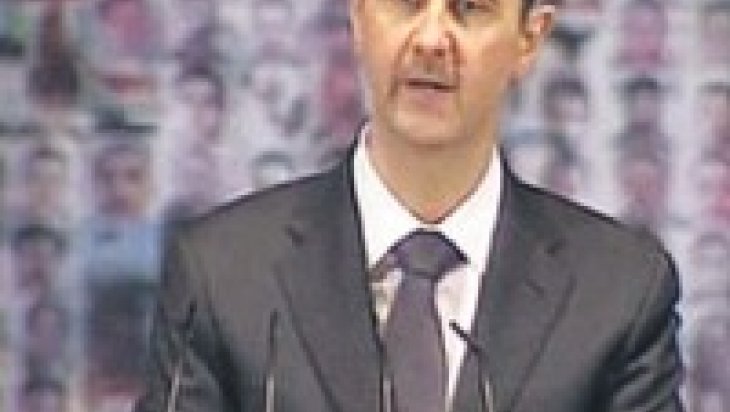Moscow-backed Iranian plan announced in Damascus

Syrian President Bashar al-Assad has delivered his first public speech since November.
His speech at the opera house in Damascus was broadcast live by state television. The backdrop onstage was a Syrian flag adorned with the photos of those Syrians who had lost their lives in the unnamed domestic war since March 2011.
I looked for something new in Assad’s speech and asked myself why he felt the need to speak to the people on Jan. 6. Jan. 7 is a religious day in the Russian Federation. In the Orthodox faith, the period between Jan. 7 and 19 is the best time for fortune telling. During this season, people try to become good and renew themselves. It is the time for peace and miraculous expectations. Is it just a coincidence that Assad picked Jan. 6 to deliver his speech? I do not know. However, it is also a reality that despite his references in the speech to these countries, China, Iran and Russia have not paid much attention to his action. For instance, Assad’s address was the seventh news item in the news reports in Russia. The first item was the arrival of French actor Gerard Depardieu, who took Russian citizenship, in Sochi to meet Vladimir Putin. The Turkish channels did not air Assad’s speech live; this represented a lack of interest in this speech.
Assad’s address to the people included nothing new. Even though he tried to look strong and decisive to make sure that his supporters would not leave him, he raised the issue of hopelessness in Syria. He proposed the announcement of a cease-fire after the monetary and arms supply for terrorism is stopped. He further offered a conference of political negotiation and joint dialogue with the opposition, the drafting of a peace plan after the conference, the formation of a transitional government, general amnesty and making a new constitution under which parliamentary elections would be held and a new government would be formed.
Assad, probably in his last speech in Damascus, announced an Iranian plan backed by Moscow. The plan originated in Iran because the Iranians have been promoting this plan in the international arena. I am not sure whether Assad is aware of it, but for Iranians, he is not off limits. What matters is not Assad; a weak and partitioned Syria would serve Israeli interests. Syria needs to stay strong and intact. Assad is too late to act. A new administration should take over in Syria; reforms should be introduced or the current government needs to attract the support of the people. In other words, Assad or the regime are not the main source of the people. Iranian interests require a democratic Syria because whoever wins the elections will be opposed to Israel. Change is necessary in Syria. A significant proportion of the Syrian people do not want Assad. However, without elections, this cannot be identified properly. Assad’s violence is illegal and wrong. However, this does not justify the opposition’s armed struggle. Democracy will not emerge from the conflict in Syria. There will be no winner in the war in Syria. The war will continue even if Assad leaves, and everybody will lose in this war.
As Foreign Minister Ahmet Davutoğlu said, Assad should have been able to make his statements in front of the people instead of in a secure hall. Assad did not imply that he would resign but should step down rather than offer unreasonable solutions. Empty and useless promises will do nothing but contribute to the continuation of violence and state of irresolution.




